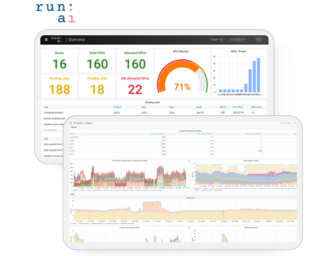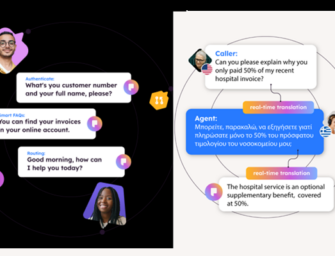EU Publishes Privacy Guidelines for Voice Assistants for Comment
 The European Data Protection Board (EDPB) has released the first draft of rules governing how voice assistant developers should protect the privacy of users and keep them informed about what data is collected. The Guidelines on Virtual Voice Assistants (VVAs) are now open for public comment until April 23, when the EDPB will revise them based on the comments received.
The European Data Protection Board (EDPB) has released the first draft of rules governing how voice assistant developers should protect the privacy of users and keep them informed about what data is collected. The Guidelines on Virtual Voice Assistants (VVAs) are now open for public comment until April 23, when the EDPB will revise them based on the comments received.
European Voice Assistant Privacy
The new guidelines are designed to address how to regulate voice assistants under the EU’s General Data Protection Regulation (GDPR) and e-Privacy Directive. Those rules don’t have much to say about voice technology, and questions about how to deal with legal and civil complaints related to voice assistants have begun cropping up in courts and legislative chambers. The highly detailed guidelines seek to fill that gap. They assess the technology and how it can be used to gather information, suggesting the voice assistants should regularly update users with what it is collecting and not bundle the voice assistant with video streaming or other services because it might make the privacy policies too confusing. That would be tough for Amazon, which connects one Alexa account to smart speakers and Fire TVs, using what the user does on one to inform its recommendations on the other.
The other major privacy concern is the accidental collection of personal information, such as if a voice assistant awakens mistakenly. The guidelines offer ideas on how to limit this issue by keeping the user informed about what data has been stored recently and by using technical solutions to stop accidental awakenings like noise filters to eliminate any but the most obviously deliberate wake words.
“Due to their role, VVAs have access to a huge amount of personal data including all users’ commands (e.g. browsing or search history) and answers (e.g. appointments in the agenda),” the regulators wrote in the guidelines. These guidelines identify some of the most relevant compliance challenges and provide recommendations to relevant stakeholders on how to address them.”
The guidelines are still subject to major revision, so it’s hard to guess how much impact they will have on Amazon, Google, and other companies with voice assistants. Should any of the companies feel that the final version of the rules is too onerous or misguided, the quick appearance of lawsuits is certain. The fact that the guidelines are being put together at all is a testament to the maturity of the market, with the positives and negatives that entails for the voice assistant developers.
European Scrutiny
Europe is a valuable market, but regulators have been much faster and sometimes stricter in their scrutiny of every aspect of voice assistants, both the technical and business sides of the industry. Last summer, the European Union started investigating potential antitrust problems surrounding voice assistants and the Internet of Things, asking 400 companies about any issues that may lead to illegal anti-competitive activities in the consumer IoT and voice assistant market. Though the investigation covers wearables and a wide variety of smart home devices, it all radiates from voice assistants, which the EC said is at the “center” of the investigation.
The focus on voice AI really accelerated almost two years ago after reports that contractors were listening to audio recordings made by voice assistants started emerging and upsetting some people. Consumers and regulators questioned why private information people didn’t know was recorded could be heard by an unknown contractor. Almost every voice assistant developer paused or revised their contractor programs. Apple apologized for its program and changed it to an opt-in system, removing contractors from the equation entirely. Even so, the original whistleblower who claimed contractors were listening to recordings made by Siri later unmasked himself to urge a deeper look, claiming Apple hadn’t changed its practices much. Soon after, Ireland’s Data Protection Commissioner began looking into possible privacy violations by Apple. The final version of the EDPB guidelines could set the boundaries for voice assistants and clearly lay out the penalties, depending partly on the results of the current comment period.
Follow @voicebotai Follow @erichschwartz
European Union Regulators Begin Antitrust Inquiry of Voice Assistants and the Internet of Things
Google Admits Some Smart Speakers Mistakenly Recorded People Without Wake Word Activation








